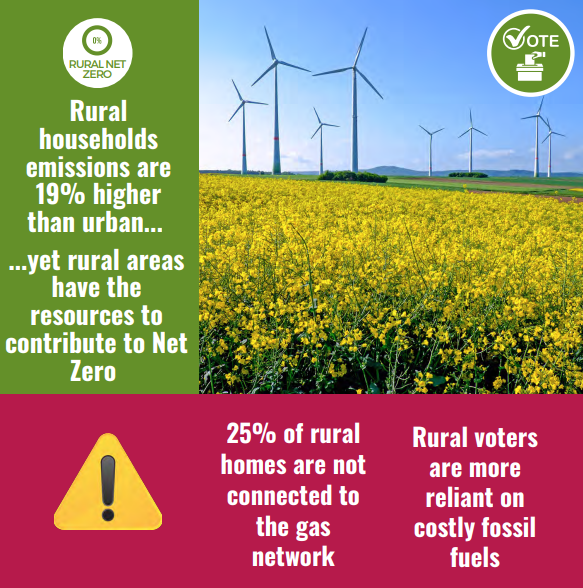T: 01822 851370 E: [email protected]
Visit RSN Survey about life in rural England to find out more.
COP 28 – Fossil Fuel progress?

World leaders have reached a new agreement to tackle climate change at a big UN meeting in Dubai.
The BBC reports on the progress made at COP 28 (read the full article at this link). COP28 was the 28th annual United Nations (UN) climate meeting, where governments discuss how to limit and prepare for future climate change.
It continues:
“For the first time, countries agreed on the need to "transition away from fossil fuels in energy systems".
The text calls for this to be done "in a just, orderly and equitable manner". This is seen as an important recognition that richer countries are expected to move away from coal, oil and gas more quickly.
However, the deal doesn't compel countries to take action, and no timescale is specified.”
The agreement includes global targets to triple the capacity of renewable energy like wind and solar power, and to double the rate of energy efficiency improvements, both by 2030.
Graham Stuart, the Minister for Energy Security and Net Zero last week made a speech in Parliament on the work of COP28. He said:
“This week’s COP28 agreement is not perfect. We wanted to see more action on coal, and on ending the construction of new coal power plants in particular. Like some of the small island states, we wanted greater clarity and fewer loopholes in the agreement. None the less, this is a turning point. We are unifying the world around a common commitment, listening to the islanders of the Pacific and elsewhere, whose voices must be heard, and showing that we are responding to the science by moving away from fossil fuels and raising a torch to inspire action.”
But what does this mean for our local authorities?
Local authorities, as providers of public services and place makers, play an important role in the journey to net zero. Indeed the Government in recent years has developed it’s Net Zero Strategy: Build Back Greener and the Rt Hon Chris Skidmore MP produced ‘Mission Zero’, an independent review of Net Zero.
The Rural Services Network has produced a rural lens review of both of these documents available here:
- Net Zero Strategy: Build Back Greener – Rural Lens Review
- Mission Zero: an independent review of Net Zero – Rural Lens Review
The Mission Zero report appears to miss the mark when understanding the practicalities and challenges for rural areas in decarbonising both heating and transport. With a reliance on private vehicles and a housing stock that also relies in areas on off gas grid solutions, which are hard to make energy efficient, particular solutions are needed for rural areas.
Rural areas with their abundance of natural assets are well placed to embrace the country’s transition to Net Zero and tackle biodiversity loss, and with government investment can deliver jobs in green growth sectors.
Rural communities must benefit from schemes that are based within their area and not just be a location for urban solutions. Many government actions proposed cannot be implemented until rural electricity supply networks are improved and reasonably priced sustainable energy alternatives are available.
From energy production to unlocking digital potential to increase jobs, rural areas offer a range of opportunities that could benefit all.
The Government has this week confirmed the allocation of funds announced at the Autumn Statement – you can read more at this link.
The Rural Services Network has set out its asks of the political parties ahead of the general election with a chapter on net zero and you can view it at this link
 |



